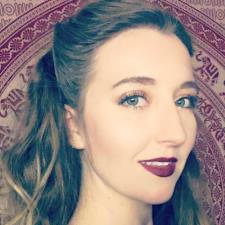
Heather L. answered • 08/03/19
Experienced Literacy, Critical Thinking and Composition Teacher
The purpose of research is to inform your writing. It sounds like you've already done an extensive amount of research on your topic but are getting caught in a cycle of self-doubt. To this I say, have faith in your revision skills. Instead of trying to write your book perfectly in the first draft, just get it out. Use the wrong words, and get stuff wrong but get everything on the page. Then you can go back with a clearer head and clean up the parts that need help as well as any errors. That being said I do have some suggestions to structure your research.
Tips:
- Draft questions - create a planning page. On this page, write down your purpose (what is it you're hoping to achieve in this text?), intended responsive understanding (what do you want the reader to think, feel, do, say because of what you wrote?), and audience (what type of person are you targeting with your text?). Once you have that, write down questions that you would need to know the answers to if you were successful in achieving your purpose and then find reliable sources that help you answer those questions.
- Don't ignore author's craft - one of the biggest mistakes that writers tend to make is skipping research on the genre. Often times, we feel like because we expose ourselves to and engage with the genre we are about to create that we know enough about it to create one. We might be close, but there are likely holes in our understanding of the genre. If you're stuck on how historical writers use tone to establish a theme, reread one that you feel like does that well looking specifically for the how.
- Remember research is a circular process - it is unrealistic to think that you can front load all of your research. If you are being thorough and intentional there should be many points throughout your writing process where you once again have to engage in some research. Don't let this discourage you - this actually means you're engaging properly in the process.
- Revisit your purpose - when researching, especially with a topic of personal interest, it can be hard to ignore interesting but irrelevant information. Be sure that when you're engaging in research you know exactly what you're intending to get from each resource you engage with and focus on that intention.
- List your knowns and unknowns - often, we convince ourselves that we know less than we do. It's possible that in your extensive reading you've already acquired the knowledge you need. When you don't and need to find additional information, it's crucial to know what you're looking for. When you come to a point in your writing where you're stuck, try this exercise:
- Write down the question or idea you're trying to understand.
- What do I already know about this? Write down EVERYTHING you know about the topic/idea/question even if it seems only loosely related.
- What do I still not know about this? Write down the holes in your understanding. You'll likely find that when you get to this part of the process, your unknown is smaller and clearer than when you started.
- What would be the most effective way to figure out my unknown? Think about how you learn best, and what is available to you to decide how to proceed.




